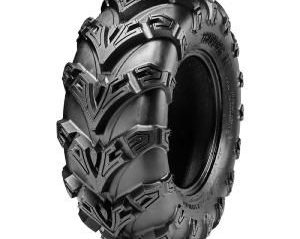Plugin Hybrid SUV: The Future of Sustainable Driving

Introduction
In a world transitioning towards a more sustainable future, plugin hybrid SUVs have emerged as a popular choice among environmentally conscious car enthusiasts. Combining the benefits of both electric and conventional engines, these vehicles offer an efficient and eco-friendly solution for those seeking a versatile and powerful SUV. In this comprehensive guide, we will delve into the intricacies of plugin hybrid SUVs, discussing their various types, popular models, quantitative measurements, differences, historical advantages and disadvantages, and the crucial factors that drive car enthusiasts to choose these vehicles.
I. An Overview of Plugin Hybrid SUVs

A plugin hybrid SUV, also known as a PHEV SUV, is a vehicle that incorporates both an internal combustion engine and an electric motor, offering the flexibility to run on either or both power sources. These vehicles generally have larger battery packs than conventional hybrid vehicles and can be recharged by plugging them into an external power source. The ability to switch between electric and traditional fuel combustion modes allows for reduced emissions and increased fuel efficiency, making plugin hybrid SUVs an appealing choice for those seeking greener transportation options.
II. Types and Popularity of Plugin Hybrid SUVs
There are several types of plugin hybrid SUVs available in the market, each with its own distinct features and advantages. The most popular types include:
1. Compact Plugin Hybrid SUVs: These models offer a smaller form factor and are ideal for urban environments, providing excellent maneuverability and fuel efficiency.
2. Mid-Size Plugin Hybrid SUVs: These vehicles strike a balance between space, performance, and efficiency, making them suitable for families or individuals with diverse needs.
3. Luxury Plugin Hybrid SUVs: Designed for those who prioritize comfort and sophistication, luxury plugin hybrid SUVs offer high-end features and cutting-edge technology, while still providing excellent fuel economy.
4. Off-Road Plugin Hybrid SUVs: Built for adventurous souls, these models have enhanced off-road capabilities, allowing drivers to explore remote terrains while minimizing their carbon footprint.
Among the most popular plugin hybrid SUVs currently dominating the market are the Toyota RAV4 Prime, Mitsubishi Outlander PHEV, Ford Escape PHEV, and Volvo XC90 T8.
III. Quantitative Measurements of Plugin Hybrid SUVs
When evaluating the performance of plugin hybrid SUVs, several quantitative measurements come into play. These include:
1. Electric Range: This indicates the distance a plugin hybrid SUV can travel solely on electric power. Models with higher electric ranges offer increased fuel efficiency and reduced emissions.
2. Fuel Economy: Measured in miles per gallon (MPG) or kilometers per liter (KM/L), fuel economy reflects how efficiently a vehicle uses fuel. Plugin hybrid SUVs typically offer better fuel economy compared to their conventional counterparts.
3. Charging Time: The time required to fully recharge the battery pack varies across different models. Faster charging times enable greater convenience for drivers, allowing them to quickly replenish the electric range.
4. Acceleration and Top Speed: Plugin hybrid SUVs boast impressive torque and acceleration capabilities due to the combination of electric and conventional engines. Some models offer breathtaking acceleration, reaching 0-60 mph in just a few seconds.
IV. Differences Among Plugin Hybrid SUVs
Although plugin hybrid SUVs share the same underlying concept, there are notable differences among various models. These differences include:
1. Battery Capacity: Plugin hybrid SUVs come equipped with different battery capacities, influencing their electric range and overall performance. Models with larger battery packs offer longer electric ranges.
2. Powertrain Configuration: The arrangement and integration of the electric motor and internal combustion engine may vary across different models, affecting their overall efficiency and driving experience.
3. Interior Space: Plugin hybrid SUVs come in different sizes, resulting in variations in interior space. Some models prioritize passenger comfort, while others emphasize cargo capacity, catering to diverse consumer needs.
4. Technology and Features: Manufacturers incorporate different technological advancements and features in their plugin hybrid SUVs, enhancing convenience, connectivity, safety, and overall driving experience.
V. Historical Advantages and Disadvantages of Plugin Hybrid SUVs
Over the years, plugin hybrid SUVs have evolved, presenting unique advantages and disadvantages. Some historical advantages include:
1. Reduced Emissions: Plugin hybrid SUVs contribute to the reduction of greenhouse gas emissions, promoting a more sustainable driving future.
2. Fuel Efficiency: These vehicles offer better fuel efficiency, resulting in cost savings and reduced dependency on fossil fuels.
3. Increased Driving Range: Plugin hybrid SUVs provide increased driving range compared to fully electric vehicles, eliminating concerns about limited charging infrastructure.
However, historical disadvantages have also existed, including:
1. Limited Charging Infrastructure: In the past, the availability of charging stations for plugin hybrid SUVs may have been limited, causing inconvenience for owners who rely heavily on electric power.
2. Higher Initial Cost: Plugin hybrid SUVs tend to have higher initial purchase costs compared to conventional SUVs, primarily due to the added battery technology.
VI. Crucial Decision Factors for Car Enthusiasts
When making a purchasing decision, car enthusiasts consider various factors, including:
1. Performance: Plugin hybrid SUVs offer a balance between power and efficiency. They provide the acceleration and performance of conventional SUVs while reducing emissions and increasing fuel economy.
2. Environmental Impact: The desire to reduce carbon footprint and contribute to environmental preservation significantly influences the decision-making process. Plugin hybrid SUVs offer a sustainable solution without sacrificing performance.
3. Range and Convenience: The electric range and charging infrastructure availability play a crucial role in the decision-making process. Car enthusiasts who require long-distance travel opt for plugin hybrid SUVs to ensure peace of mind.
4. Tax Incentives and Rebates: Governments worldwide provide incentives and rebates for purchasing environmentally friendly vehicles, including plugin hybrid SUVs. These financial perks drive car enthusiasts towards choosing these vehicles.
Conclusion
As the world seeks sustainable alternatives in the automotive industry, plugin hybrid SUVs have garnered significant attention. Offering a blend of electric and conventional power, these vehicles provide a greener solution without compromising on performance or utility. With a diverse range of models available, each catering to unique preferences, plugin hybrid SUVs have become a popular choice among environmentally conscious car enthusiasts. By considering crucial decision factors, such as performance, environmental impact, range, and financial incentives, car enthusiasts can make informed choices that align with their values while enjoying the benefits of a plugin hybrid SUV’s power and efficiency.
Overall, plugin hybrid SUVs represent a significant step towards a sustainable transportation future. Their integration of electric and conventional power sources provides drivers with the flexibility to reduce emissions and increase fuel efficiency while maintaining the performance and utility expected from a SUV. With advancements in battery technology and an expanding charging infrastructure, plugin hybrid SUVs are poised to lead the way towards greener driving experiences. So, if you’re a car enthusiast looking to make a conscious choice without compromising on power or utility, a plugin hybrid SUV might just be the perfect fit for you.
















































